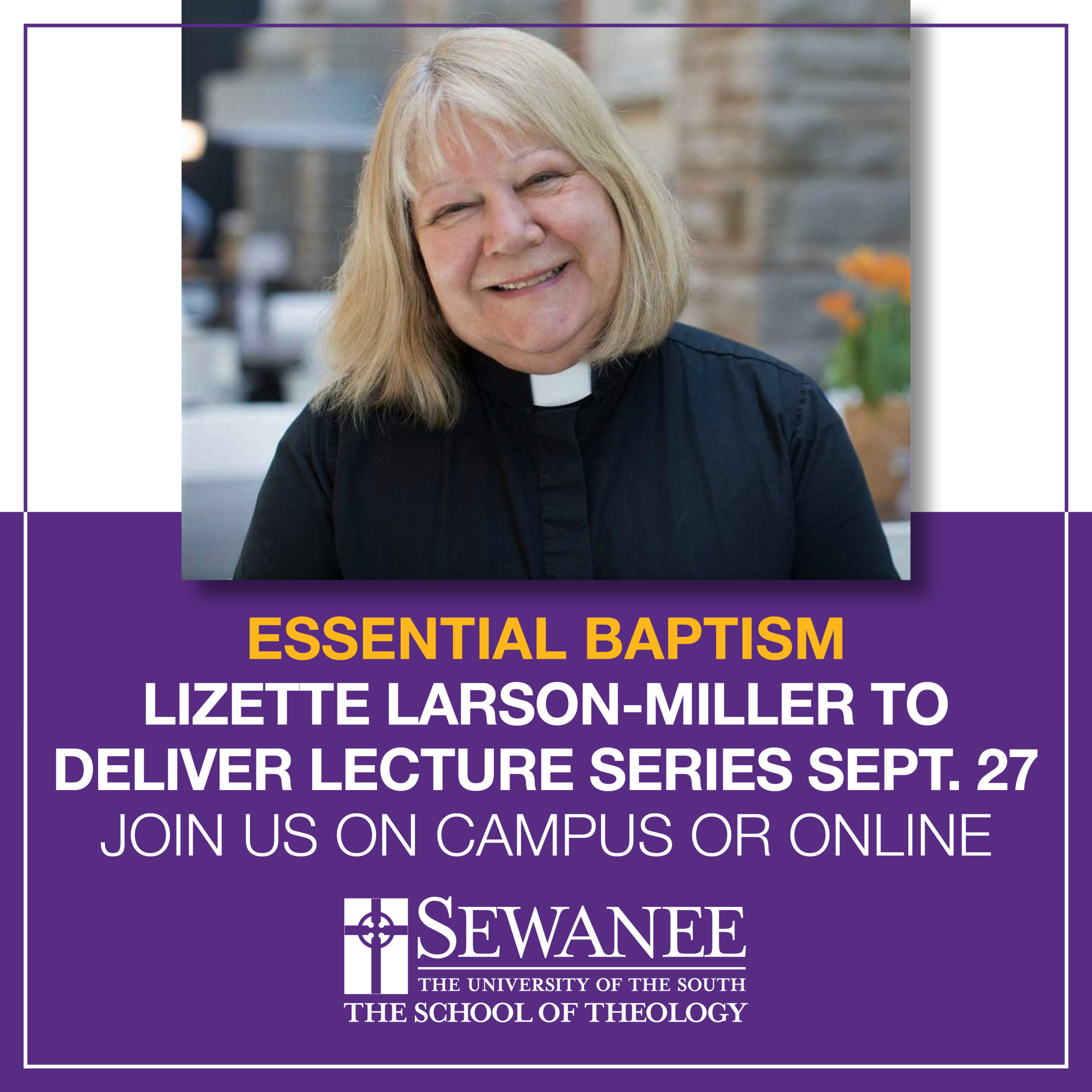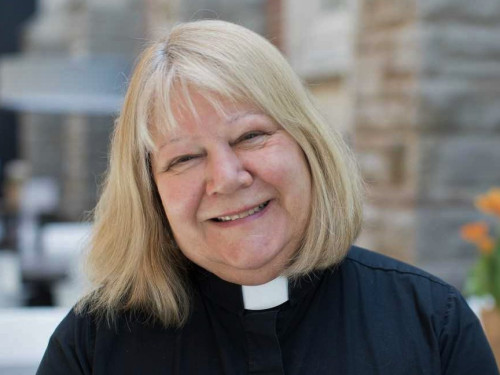
- This event has passed.
Annual Lectures Featuring The Rev. Canon Dr. Lizette Larson-Miller
October 27, 2023

On Sept. 27 the Rev. Canon Dr. Lizette Larson-Miller will give a three-lecture series at the School of Theology in Sewanee, Tennessee. Entitled “Essential Baptism,” the lecture series will explore fundamental questions surrounding baptism, sacramental initiation, and eschatological belonging.
Hosted by the School of Theology, the lectures will be held in Guerry Auditorium on the campus of the University of the South beginning at 9:00 a.m. The series is free and open to the public. All are welcome and encouraged to attend on campus or via livestream webinar.
The annual lecture series is the cornerstone of the 2023 two-day long Homecoming event, which will be held on campus Sept. 26-28. Homecoming festivities include a semi-formal cocktail reception and banquet dinner, continuing education workshops, EfM gatherings with the new executive director, the Rev. Kevin M. Goodman, communal worship, guided hikes, and other organized activities. Find 2023 Homecoming event details here. Space is limited so, register below
REGISTER HERE FOR THE 2023 HOMECOMING FESTIVITIES
ABOUT THE LECTURES

LECTURE ONE: IS BAPTISM ESSENTIAL?
9:00 – 10:00 a.m. (CDT)
Several churches in the United States, including the Episcopal Church, seem to be increasingly unsure of baptism as essential to the individual Christian or the communal life of the body of Christ. How did baptism become the enemy of hospitality? Is the theology of baptism invisible, like its presumed effects? Have we too soon tossed out pastoral theology as a framework for essential beliefs (theologized faith) only for it to be substituted by a shallow evangelism dressed as a membership drive? Reflecting back on the proposed change dropping the requirement that baptism be a prerequisite for the reception of communion, it may be time to revisit the centrality of pastoral theology and parish catechesis. Theology is not the enemy of church growth, but the ground of the wisdom of faith and our lifelong journey into union with God.
LECTURE TWO: SACRAMENTAL INITIATION
1:00 – 2:00 p.m. (CDT)
Is it time to re-visit the 1979 Book of Common Prayer’s articulation of baptism as “full initiation by water and the Holy Spirit into Christ’s Body the Church?” If we stressed the multiple rites of initiation, would it assist in undoing the perception of baptism as “preventing” people from receiving communion? Would moving away from a type of sacramental competition to a richness in the multiplicity of sacramental transformations remind us that it is the church (the body of Christ) with its head, Christ, which “makes the Eucharist,” which is itself reconstituted in the Eucharist? How is the Eucharist both a sacrament of initiation and the continuation of that throughout the life of a Christian? How is the sacramentality of the Eucharist inseparable from ecclesiology—our theology of the church?
LECTURE THREE: ESCHATOLOGICAL BELONGING
3:00 – 4:00 p.m. (CDT)
Is baptism primarily about living one’s life as a member of the body of Christ in this life or as preparation for the next (and eternal) life? What if eschatological belonging is both, made manifest as a continuous journey marking the centrality of baptism in life and death? Historically we have often seen baptism as a type of gate into life in Christ in anticipation of our death. While contemporary liturgical rites balance the forgiveness of sins (historically original sin) with incorporation into the “household of God” and the Body of Christ, it is still often popularly perceived as an eschatological necessity. How is baptism part of our life in Christ in this life? The first two lectures have presented the relationship of the rite of baptism and Eucharist in particular, this conclusion expands to link this life as a life of baptismal joy and obligation.
ABOUT THE REV. CANON DR. LIZETTE LARSON-MILLER
Larson-Miller is the Canon Precentor of the Anglican Diocese of Huron, and past president of Societas Liturgica and the IALC (International Anglican Liturgical Consultation). Her areas of study span liturgical history (especially late antiquity and early medieval liturgical developments), rites and rituals with the sick, the dying, and the dead; and contemporary sacramental theology and sacramentality. She holds two degrees in music, an MA in liturgical studies from St. John’s University (Collegeville), and a PhD in liturgical studies from the Graduate Theological Union in Berkeley, California. She is the author of “Sacramentality Renewed: Contemporary Conversations in Sacramental Theology” (Liturgical Press, 2016).
